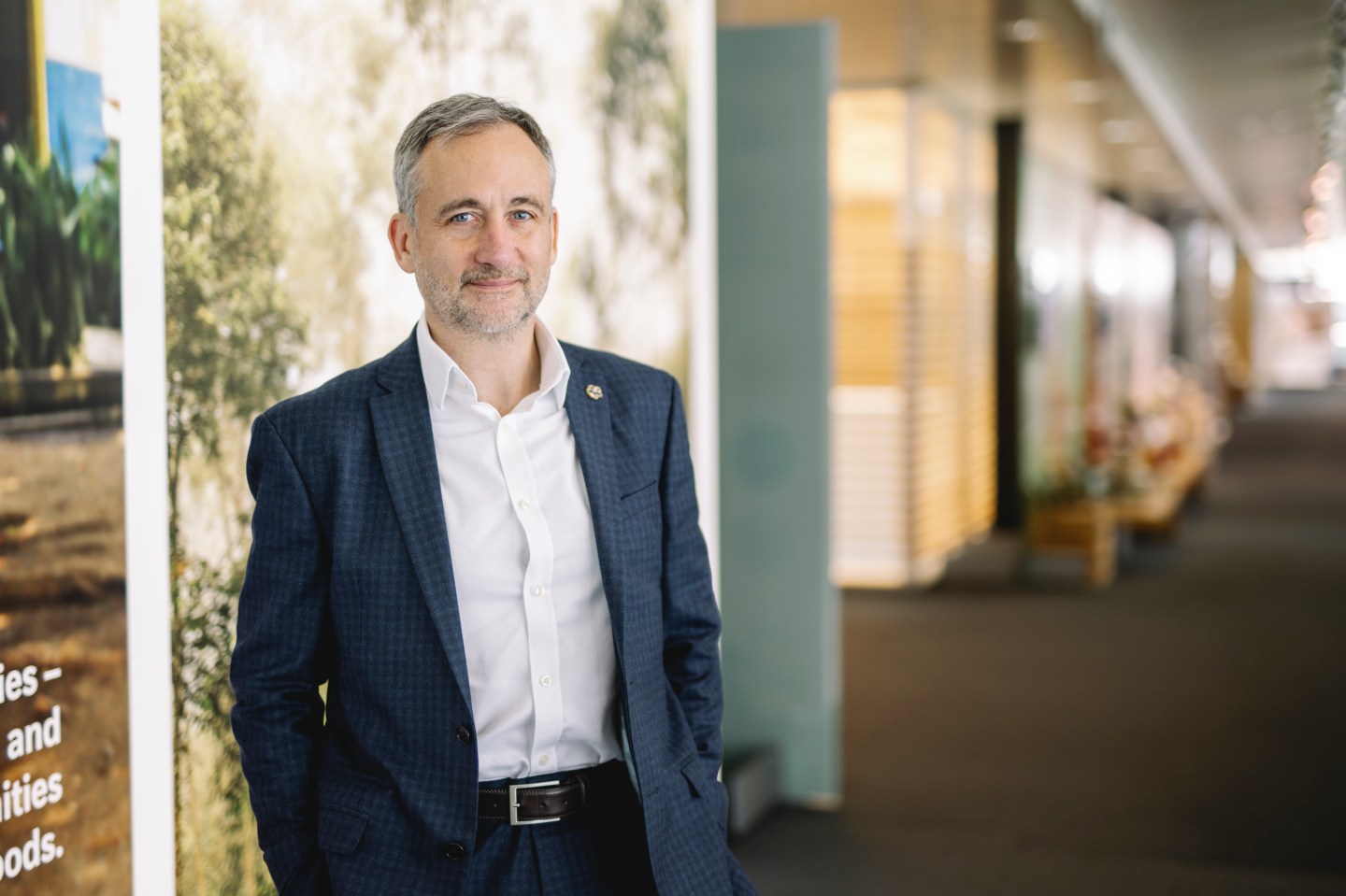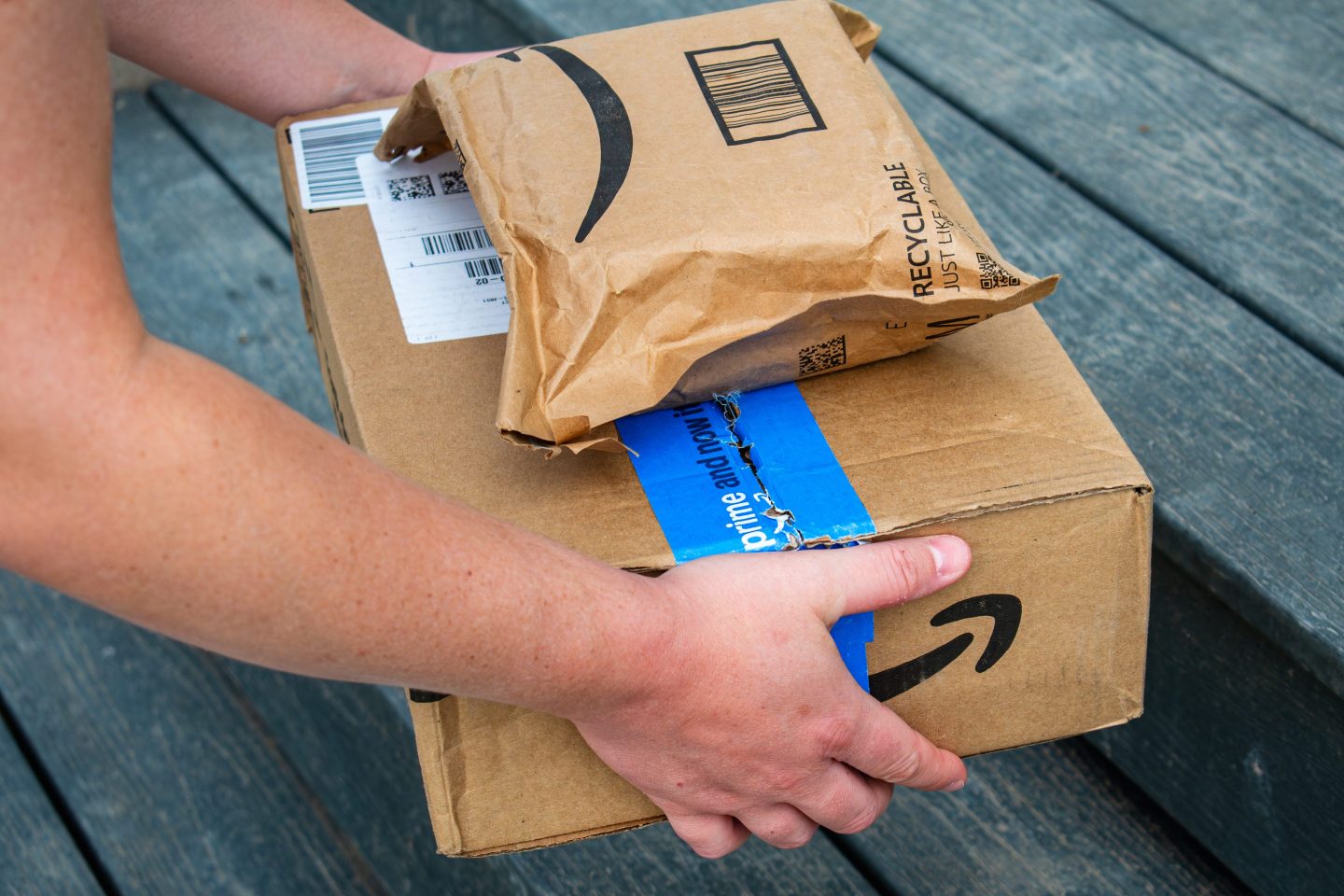Good morning, it’s Finance editor Jeff Roberts tagging in for hardworking Allie. Did you know Mark Zuckerberg, Reid Hoffman, and Sheryl Sandberg all share an office? Well, technically a family office. The trio of billionaires, along with a few other tech moguls, all rely on Iconiq Capital—a so-called multi-family office—to manage their wealth.
This was one of many interesting tidbits I learned while reading this fine new Fortune feature about family offices, which—despite their folksy sounding name—are some of the most wealthy and sophisticated entities on the planet. And their scale and influence is growing. Oil baron John D. Rockefeller founded the first one in 1882 and, after a century occupying a quiet corner of the financial world, they began to take off.
To get a sense of just how big family offices have become, there are now over 8,000 of them managing more than $3 trillion in assets, up from 6,130 just five years ago—and that’s only counting single-family offices (versus multi-family offices like Iconiq). They are also major players in the venture and broader investment world.
Family offices do a lot of things—from estate planning to smoothing out riffs between cranky patriarchs and ungrateful grandchildren—but their main raison d’etre is to create and preserve wealth across generations. This expansive investing horizon also makes them a natural partner for the venture capital world, as the Fortune feature explains:
They take on greater risk with these illiquid investments, ideally, to achieve greater potential long-term returns. And because many family offices are operating over time horizons of 50 to even 100 years, they have a much longer timeline to wait for riskier investments to pay off.
That’s made them critical sources of capital for private equity and venture capital: Nearly a third of startup capital worldwide in 2022 came from family offices, according to a 2023 PwC report. In the past year, buzzy startups like Perplexity AI have received direct investments from the likes of Bezos Expeditions, the single-family office of Amazon billionaire Jeff Bezos.
Currently, 52% of family offices invest in venture capital and that figure is likely to grow. This provides family offices with the chance to reap outsize returns, but it also provides venture and private equity firms with a new source of capital to round out mega-funds. According to Myles Milston, cofounder and CEO of Globacap, the “longer tail of family offices” may now make up 20% or more of a $5 billion fund—something that would have been inconceivable even a decade ago.
At a time when many nation states are drowning in debt and wrestling with political turmoil, it’s also easy to imagine larger family offices flexing their influence in geopolitics—in the same way sovereign wealth funds have for years. Though don’t expect the same level of transparency as some country funds since the other defining characteristic of family offices is a high degree of secrecy.
And for any readers contemplating a family office of their own, Fortune also has a companion piece that explains how they operate and what sort of dough you’d need to get started. Be warned, though, that the smallest of these entities hold $50 million in assets—so you may need to scratch together a few more nickels before Mark and Sheryl will find you a corner in their office.
Musk OpenAI update…We finally have some firm details regarding Elon Musk’s unsolicited $93.75 billion unsolicited offer for OpenAI, now that the official letter of intent was filed in court. As Jessica Mathews reports, Musk and his band of investors are promising to pay all cash, with no debt financing required. (If you’re wondering how, you’re not alone). Other interesting nuggets: Musk wants access to OpenAI’s books, including financial projections “with a focus on the key drivers of revenue growth and EBITDA,” in order to conduct due diligence. And he has set a May 10 deadline for OpenAI to accept or reject the deal.
Jeff John Roberts
Email: jeff.roberts@fortune.com
Submit a deal for the Term Sheet newsletter here.
Nina Ajemian curated the deals section of today’s newsletter. Subscribe here.
VENTURE DEALS
- Apptronik, an Austin-based robotics company, raised $350 million in Series A funding. B Capital and Capital Factory led the round and were joined by Google.
- Abcuro, a Newton, Mass.-based immunotherapies developer, raised $200 million in Series C funding. New Enterprise Associates led the round and was joined by Foresite Capital, existing investors RA Capital Management, Bain Capital Life Sciences, Redmile Group, and others.
- Chestnut Carbon, a New York City-based carbon removal company, raised $160 million in Series B funding from Cloverlay, DBL Partners, existing investor Canada Pension Plan Investment Board, and others.
- SpotDraft, a Bengaluru, India-based contract management system for legal teams, raised $54 million in Series B funding. Vertex Growth Singapore and Trident Partners led the round and were joined by existing investors Xeed VC, Arkam Ventures, Prosus Ventures, and Premji Invest.
- Candid Health, a San Francisco-based revenue cycle automation platform for healthcare providers, raised $52.5 million in Series C funding. Oak HC/FT led the round and was joined by existing investors.
- OLIPOP, an Oakland, Calif.-based soda brand, raised $50 million in funding from J.P. Morgan Private Capital’s Growth Equity Partners, bringing the company’s valuation to $1.85 billion.
- Justpoint, a New York City-based AI-powered lawsuit assistance platform for victims of harmful substances, raised $45 million in Series A funding. SignalFire led the round and was joined by others.
- High Definition Vehicle Insurance, a Chicago-based commercial auto insurance company, raised $40 million in funding from existing investors 8VC, Autotech Ventures, Munich Re Ventures, and Weatherford Capital.
- SGNL, a Palo Alto-based identity security company, raised $30 million in Series A funding. Brightmind Partners led the round and was joined by Costanoa Ventures, M12, and Cisco Investments.
- Lucidity, a New York City-based multi-cloud storage management solutions provider, raised $21 million in Series A funding. WestBridge Capital led the round and was joined by existing investor Alpha Wave.
- Finmo, a Singapore-based treasury management solutions platform, raised $18.5 million in Series A funding. Quona Capital and PayPal Ventures led the round and were joined by Citi Ventures.
- ACCURE Battery Intelligence, an Aachen, Germany-based battery safety company, raised $16 million in Series B funding. Incharge Capital Partners led the round and was joined by existing investors BlueBear Capital, HSBC Asset Management, Riverstone Holdings, and others.
- Lingopal.ai, a New York City-based AI-powered speech translation program, raised $14 million in Series A funding. DCM led the round and was joined by Scrum Ventures, Marquee Ventures, and angel investors.
- Akamas, a Milan-based application optimization platform, raised $10 million in funding from United Ventures.
- GamerBoom, a New York City-based AI-power Web3 gaming data analytics provider, raised $9 million in funding from Bing Ventures, SKY Ventures, MBK Capital, and others.
- Keragon, a New York City-based healthcare software automation platform, raised $7.5 million in seed funding. Upfront Ventures led the round and was joined by existing investors Afore Capital, Focal, and 25m Health.
- Oso Semiconductor, a Mountain View, Calif.-based chipsets developer, raised $5.2 million in seed funding. Engine Ventures led the round and was joined by Entrada Ventures, Berkeley SkyDeck, and J-Ventures.
- Keychain, a New York City-based AI-powered consumer packaged goods manufacturing platform, raised $5 million in funding from Bright Pixel Capital.
- Springboards, a Noosa, Australia-based AI-powered creative platform for advertisers, raised $5 million in seed funding from Blackbird Ventures and others.
- Factor House, a Melbourne-based streaming data management platform, raised $5 million in seed funding. Blackbird Ventures led the round and was joined by OIF Ventures, Flying Fox Ventures, and LaunchVic’s Alice Anderson Fund.
- Trayd, a New York City-based construction payroll and compliance solutions provider, raised $4.5 million in seed funding. Suffolk Technologies led the round and was joined by Bloomberg Beta and Y Combinator.
- Index, a Sydney-based product management planning platform, raised $3.5 million AUD ($2.2 million) in seed funding. Bain Capital Ventures and Blackbird Ventures led the round and were joined by Bond Capital, Y Combinator, and angel investors.
- Mattoboard, a Las Vegas-based AI-powered 3D interior design platform, raised $2 million in seed funding. Acrobator Ventures led the round and was joined by Blue Field Capital, SoundBoard, Home Depot Ventures, and Masco.
- Tusk Logistics, a Chicago-based alternative shipping solutions provider, raised $2 million in seed funding. Ivy Ventures led the round and was joined by Titletown Tech, Forum Ventures, and angel investors.
PRIVATE EQUITY
- Agellus Capital acquired CompassMSP, a West Hartford, Conn.-based IT and cybersecurity solutions provider for small and mid-sized enterprises that will be combined with BlackPoint, a portfolio company of Agellus. Financial terms were not disclosed.
- Hidden Harbor Capital Partners acquired Coast to Coast Logistics, a Deerfield, Ill.-based drayage solutions provider. Financial terms were not disclosed.
- Platinum Equity acquired Héroux-Devtek, a Longueuil, Canada-based landing gear provider for the aerospace industry. Financial terms were not disclosed.
EXITS
- MBK Partners agreed to acquire an 80% stake in and FormFactor agreed to acquire a 20% stake in FICT, a Nagano, Japan-based circuit boards developer, from Advantage Partners at an enterprise value of 100 billion yen (around $660 million), per Forbes. Form Factor agreed to invest $60 million in the FormFactor and MBKP consortium.
- Handgards, a portfolio company of Wynnchurch Capital, acquired Inno-Pak, a Delaware, Ohio-based food packaging provider, from Emerald Lake Capital Management. Financial terms were not disclosed.
- Solina Group, backed by Astorg, acquired Sokol Custom Food Ingredients, a Countryside, Ill.-based sauce solutions provider, from Burlington Capital Partners. Financial terms were not disclosed.
OTHER
- Modern Times Group acquired Plarium, a Herzliya, Israel-based game developer, for $620 million.
- Harness, a San Francisco-based software delivery platform, agreed to merge with Traceable, a San Francisco-based API security provider. Financial terms were not disclosed.
- Tom Brady acquired a 50% stake in CardVault, a Boston-based sports cards and collectibles retailer that will be renamed CardVault by Tom Brady. Financial terms were not disclosed.
FUNDS + FUNDS OF FUNDS
- PSG, a Boston-based growth equity firm, raised $6 billion for its sixth fund focused on software and technology-enabled service providers.
- IMB Partners, a Bethesda, Md.-based private equity firm, raised $125.5 million for its first fund focused on utilities and government contracting service providers.
- Antler, a Stockholm-based venture capital firm, raised $100 million for its second Nordic fund focused on early-stage technology companies.
PEOPLE
- TMV, a New York City-based venture capital firm, promoted Emma Silverman to partner.
- True Ventures, a Palo Alto-based venture capital firm, promoted Kevin Rose and Mike Montano to partner.












